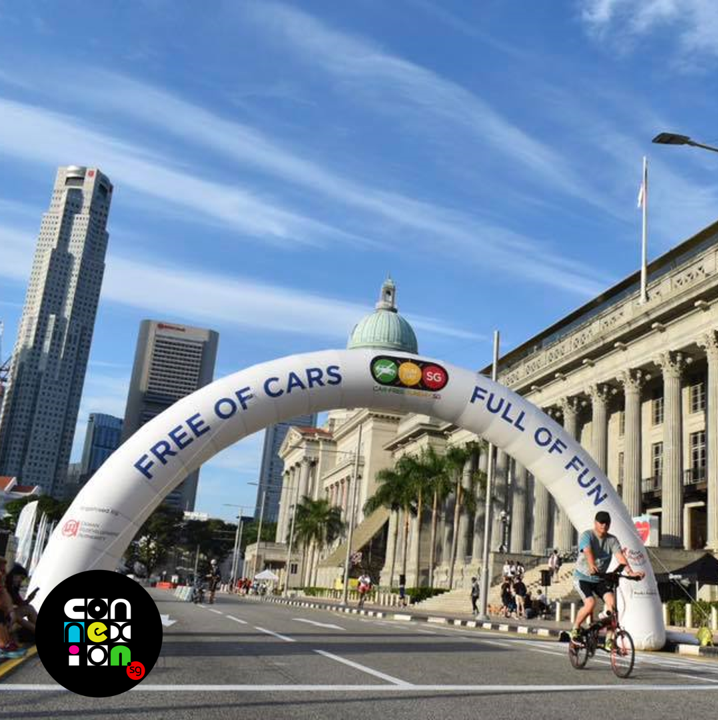Car-Free Sunday in Singapore

📸: Car-Free Sunday SG
#OnThisDay in 2001, #SingaporesFirst Car-Free Day was organised by the Singapore Environment Council to highlight the importance of minimising traffic pollution. Drivers were encouraged to leave their vehicles at home for a day and take public transport, carpool, cycle, or walk.
In recent years, this has become what we know as Car-Free Sunday SG. Sections of the Civic and Central Business Districts are closed off on the last weekend of each month, with sports, arts, and cultural activities to attract the public to walk, run, and cycle freely on car-less roads. Car-Free Sunday SG turns part of our city into a pedestrian- and cyclist-friendly precinct and creates a 5.5 km route of closed roads in the heart of the city. It is part of the larger movement towards a car-lite Singapore, envisioning our city with fewer cars — so Singaporeans can warm up to the idea of less traffic, more space, and a greener Singapore.
This is crucial, as the threat of climate change is getting more ominous. The average global temperature has increased by 1°C compared to pre-industrial times — a result of human activity pumping more greenhouse gases into the atmosphere. To mitigate climate change, we have to do our part to reduce emissions.
Singapore’s journey towards a car-lite nation has made some progress over the last 20 years. Electric vehicles are becoming commonplace and new modes of transport, such as Private Hire Vehicles, Car-Sharing, and Autonomous Vehicles, have sprung up.
By 2040, Singapore’s public transportation network is expected to get residents to their neighbourhood centres within 20 minutes. Peak-hour commutes between home and work should take no longer than 45 minutes. More on-demand services, priority bus lanes and Integrated Transport Hubs will be rolled out. There will also be more spaces for alternative travel modes. When fully completed in 2026, the North-South Corridor will have dedicated bus lanes, cycling trunk routes, and pedestrian paths throughout the length of the expressway.
The big question is, will these efforts convince Singaporeans to ditch owning cars? After all, cars are still regarded by many as a status symbol and lifestyle aspiration. With better transport alternatives emerging, can ‘Convenience’ replace ‘Cars’ as one of the evolving 5C’s of the Singaporean Dream?

